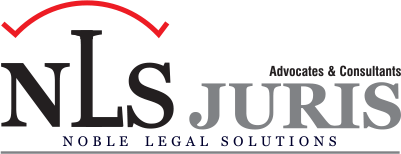Defending your rights by expert guidance.
In an ideal world, everyone would be treated fairly and lawfully. However, the reality is often different. From workplace discrimination and contract disputes to police misconduct and family law battles, individuals frequently find themselves in situations where their rights are challenged or outright violated. In such moments, understanding your rights and knowing how to defend them becomes crucial — and expert guidance is the key.
Why Knowing Your Rights Isn’t Enough
Many people believe that having a basic understanding of the law is sufficient to protect themselves. While general awareness is essential, legal systems are complex and nuanced. Laws differ by jurisdiction and can change over time. Without specialized knowledge, it’s easy to misinterpret your rights or make errors that weaken your position.
Consider a scenario where an employee is wrongfully terminated. They might assume they have a clear case based on discrimination or retaliation. However, proving such a claim requires understanding labor laws, filing deadlines, burden of proof, and the correct legal procedures. Without expert guidance, the employee might miss critical steps, resulting in lost compensation or reinstatement.
The Role of Legal Experts
Legal experts — whether advocates, solicitors, or consultants — serve as your navigators through the often-confusing legal maze. Here’s how they help:
1. Interpretation and Advice
Legal jargon can be overwhelming. A legal professional translates dense laws into understandable advice tailored to your specific situation. They assess the strength of your case, outline your options, and advise on the best course of action.
2. Representation and Advocacy
When facing a legal challenge, you need someone in your corner who understands court rules and procedural intricacies. Legal experts represent your interests in negotiations, hearings, and courtrooms. Their experience in similar cases helps present your arguments in the strongest possible light.
3. Preventative Protection
Seeking expert guidance isn’t just for when things go wrong. Lawyers play a key role in preventative legal strategies — drafting contracts, conducting compliance audits, or advising on business transactions to avoid future disputes. Proactive legal support is often far less costly than reactive litigation.
Areas Where Expert Legal Help Matters Most
While the law touches nearly every area of life, some fields demand expert attention more than others due to their complexity:
- Criminal Law: If accused of a crime, having a defense attorney can mean the difference between freedom and imprisonment. They ensure your rights are protected during investigation and trial.
- Family Law: Divorce, child custody, and inheritance cases are emotionally charged and legally intricate. An expert can help navigate the emotional and legal challenges with clarity.
- Employment Law: Issues like wrongful termination, harassment, or unpaid wages require specialized knowledge of labor laws and employer-employee dynamics.
- Consumer Rights: From defective products to unfair trade practices, a legal expert can help consumers hold corporations accountable.
- Property and Real Estate: Title disputes, tenancy issues, or fraudulent transactions require precise legal scrutiny and representation.
The Risks of Going It Alone
While online legal templates and self-help legal resources are more accessible than ever, they’re no replacement for personal legal counsel. Here are the risks of handling legal matters without expert guidance:
- Misfiling documents or missing deadlines
- Agreeing to unfavorable settlements
- Misunderstanding laws and legal obligations
- Wasting time and resources on futile legal strategies
Ultimately, DIY law may save money upfront but can lead to far greater losses in the long run.
Choosing the Right Legal Expert
Finding the right legal support is critical. Here are a few tips:
- Specialization: Choose a lawyer who specializes in the area relevant to your issue.
- Reputation: Check reviews, ratings, and recommendations. Transparency and trustworthiness matter.
- Accessibility: Choose someone responsive and willing to explain things clearly.
- Fees: Understand the fee structure — flat rate, hourly, contingency — before you commit.
A good legal expert is not just knowledgeable but also empathetic, strategic, and communicative.
Empowerment Through Expertise
Defending your rights isn’t just about fighting legal battles — it’s about empowering yourself to live with dignity, fairness, and security. With the right legal expert by your side, you’re not alone in your fight. You gain clarity, confidence, and the power to challenge injustice with the full weight of the law behind you.
Whether you’re facing a dispute or simply want to protect your interests, never underestimate the value of expert guidance. The law exists to serve and protect — but it takes expertise to make it work for you.
